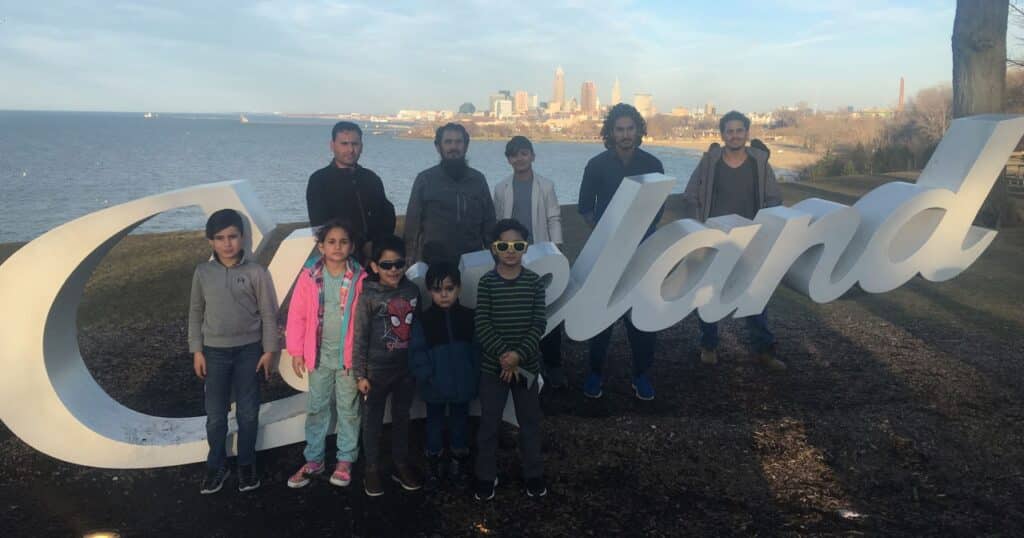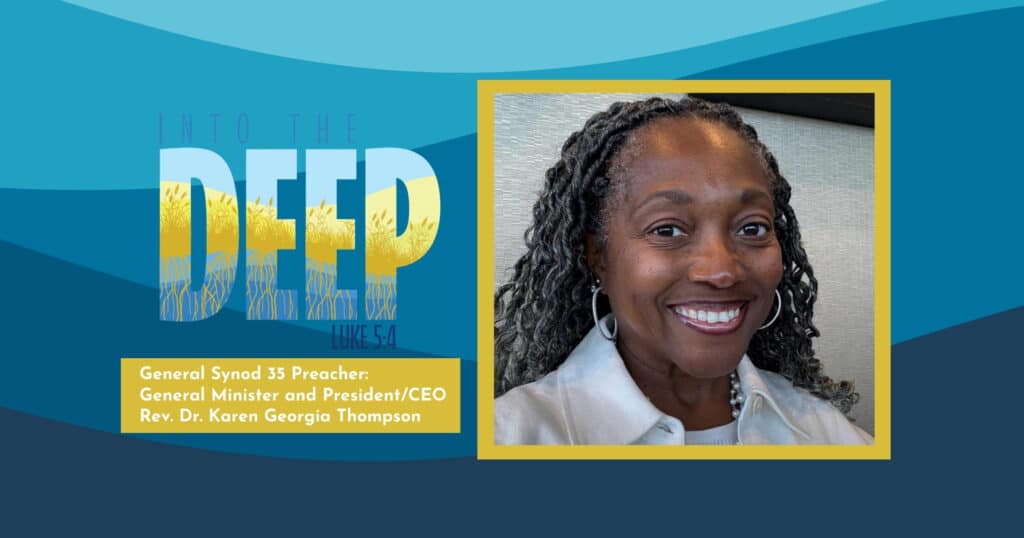An Ohio church leans in; UCC asks others to consider accompaniment
Welcome the stranger. Now more than ever, the United Church of Christ is calling its people to live into a 2017 General Synod resolution and become an immigrant-welcoming church.
“The UCC urgently needs churches to consider dedicating ministerial time and resources to asylum concerns as policies and migration patterns are rapidly changing at the southern border,” said the Rev. Irene Willis Hassan, minister for refugee and migration ministries.
“This can look like a number of things, ranging from donating to shelters, volunteering at shelters, partnering with organizations such as U.S. Department of Homeland Security to provide respite homes for migrants transiting across the country, becoming an asylum accompaniment church, or a sanctuary church.”
One church, one family
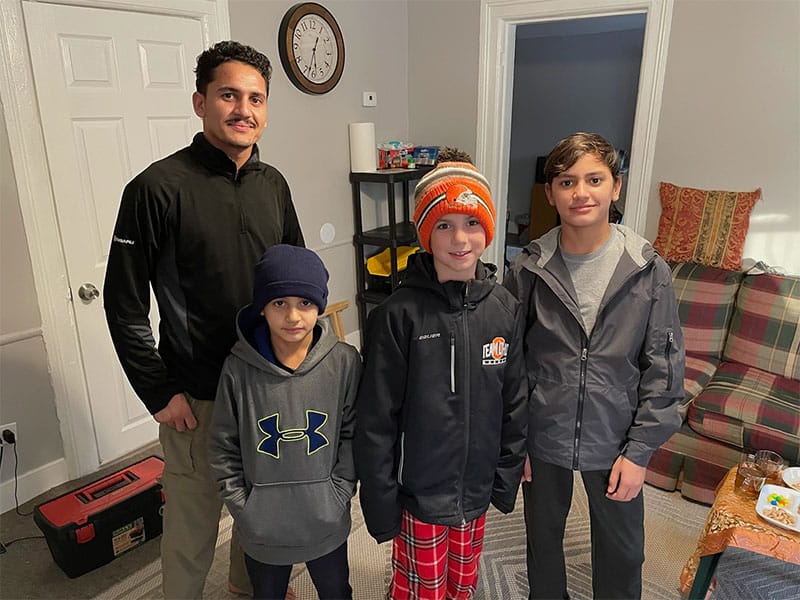
Avon Lake United Church of Christ, located in a suburb west of Cleveland, made its accompaniment decision rapidly. Congregants stepped in to receive an Afghan family last December.
“We were asked, the week before Christmas, if we could sponsor a family of nine,” said the Rev. Kelly Brill, the church’s senior minister. “The U.S. Committee for Refugees and Immigrants — its Cleveland office — wasn’t quite ready to receive them. They’d been having trouble finding affordable housing.
“But this family had been at Fort Dix for three months and everyone knew they were ready for their own home. They had relatives in Cleveland, who’d arrived a month or so before they did. USCRI asked Jamie, Jamie asked me, and I said, ‘yes.’”
A home, and appointments
The congregation quickly readied a home on the Cleveland’s West Side for the couple and seven of their children, ranging in age from 19 to 5. Jamie Wise, a retired U.S. Navy nurse who was volunteering with the refugee organization, helped organize a group of fellow ALUCC volunteers, many who Brill noted were “brand-new members, or people who had not yet connected to any other ministry.”
They raided the church thrift shop for some of the supplies that could be used to set up housekeeping and dedicated a portion of the church Christmas offering to the project to purchase others.
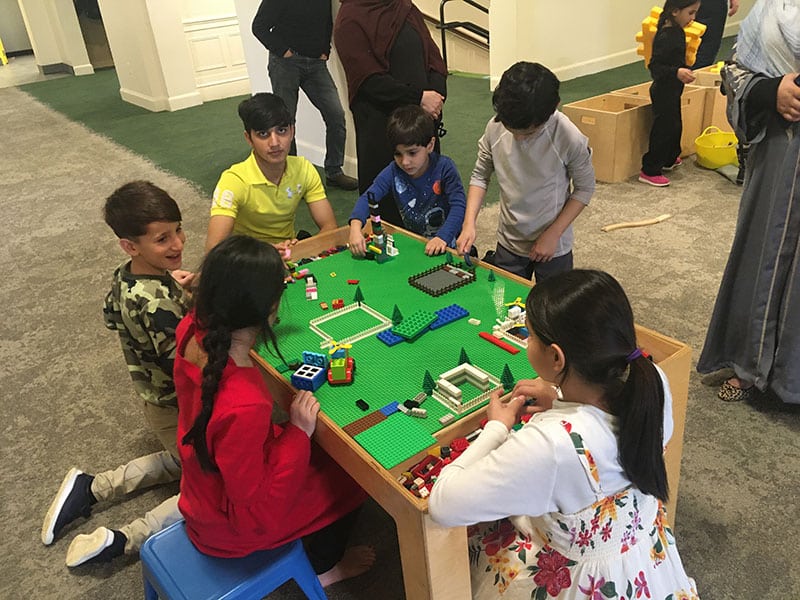
Wise worked with their case manager and set up schedules to help family members apply for their documents and to drive them to doctors’ appointments, the stores and such.
Language, culture
“It’s been an eye-opening experience,” she said. “The family did not speak English. We are using Google Translate to communicate with them. Their case manager speaks their language, so he was there to help us. He’s also done a lot to explain the cultural nuances so we can understand the family.
“One of the key things in working with them is building trust and building relationships. How they do that is inviting you in for tea. Building that trust is critical. They are turning their whole lives over to us to get them started … so vulnerable in this initial phase.”
Wise said it’s been important to help them navigate a new culture while allowing them to lead. She offered an example: One of the sons didn’t want to take a food service job at the Cleveland Clinic because men don’t do domestic work in their culture.
Support system
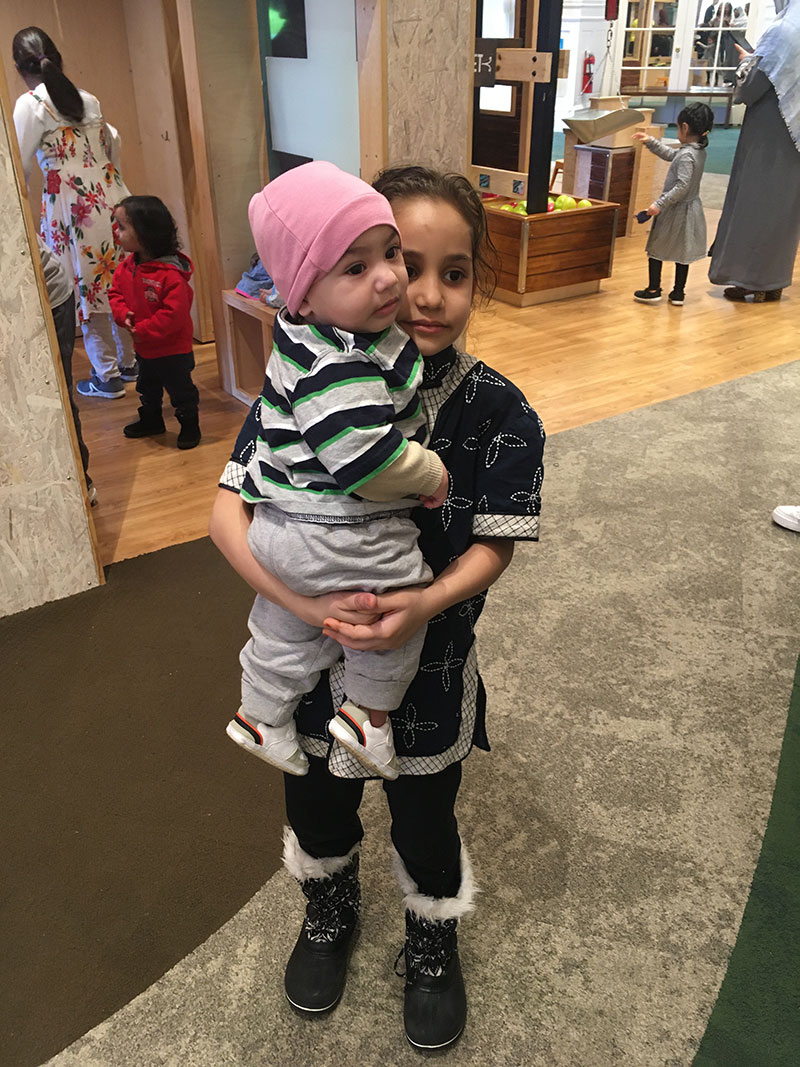
“There are some things they don’t want to Americanize,” said Keri Foster, another ALUCC member, noting that they’d rather gather for their meals around a tablecloth with cushions on the floor, instead of a dining room table. “Our first inclination was to give them what we would need. They have been able to make a life here, are acclimating well now. But they are homesick.
“They were traumatized at first, but they found other people like them and created a support system. That has helped them along.”
“Part of their survival mechanism is being together,” Wise said. “They all want to visit with each other. They are forming their own family community. But they don’t understand the ins and outs of American culture.”
‘Gracious recipients’
The father in this family was in the Afghan special forces. He worked closely with the U.S. military. His oldest son and his family are also now in Cleveland and the ALUCC group is now interacting with more than 40 extended family members from Afghanistan. And while their sponsored family is now financially independent – the church offered assistance over the last six months – the bond remains.
”They have been gracious recipients, every single day,” Brill said. “They seem open to learning, open to meeting new people. They have hosted our members for tea and dinner. It has been an extraordinarily positive experience.
“I very much look forward to our continued relationship with this family, and what we will learn from them when we’re able to communicate more easily.”
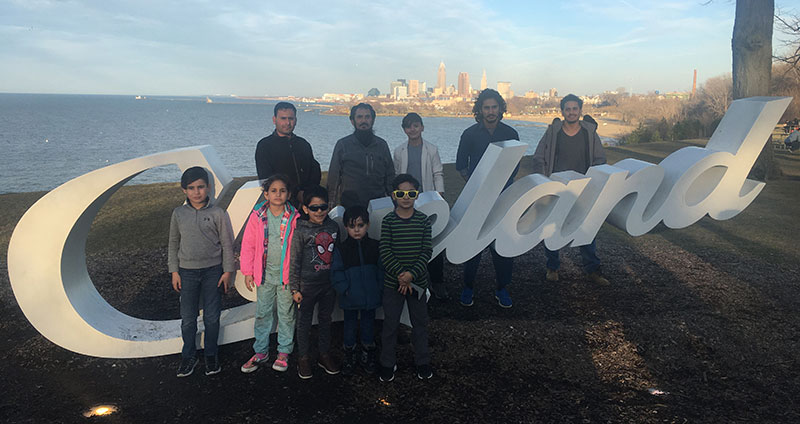
‘We need more churches’
Hassan, who serves on the Global H.O.P.E. team in the UCC’s national setting, is hoping other congregations consider accompaniment in light of the Supreme Court’s recent decision which could end the Migrant Protection Protocols (MPP), also known as Trump’s “Remain in Mexico” policy.
The court ruled June 30 that the Biden administration can stop forcing asylum seekers to wait in Mexico as their cases make their way through U.S. immigration courts. And though hundreds of churches, like Avon Lake UCC, already minister to immigrants and asylum seekers, more will be needed as the policies like “Remain in Mexico” and Title 42 are rescinded.
That’s why the UCC is currently offering a July webinar series that covers the different types of migration patterns and what churches can do assist.
“The ‘Types of Forced Migration’ series will cover the differences between ministries that churches can provide migrants and help churches discern their call or capacity to serve,” Hassan said. “We need more churches now than ever to train as asylum-accompaniment churches.
“We are aware that the immigration process to the U.S. is multifaceted and difficult to understand, so this series is meant to clarify your ability to discern if your church has the capacity to host a particular type of immigrant among the migration patterns occurring in 2022.”
Webinars and grants
How can your church best welcome one or more of these groups? Check the series:
- On July 6, Hassan provided an overview of the international migration system – ‘Why Afghanistan, Ukraine, the Southern Border, and Syria All Look So Different.’ A recording of that webinar can be seen here on YouTube.
- July 13, 3 p.m. ET: ‘The Ukrainian Crisis, Horn of Africa Crisis, and Refugee Resettlement: Where Do We Go When Our Country is Burning?’
- July 20, 3 p.m. ET: ‘The Afghanistan Crisis, the Ukrainian Exception, and Humanitarian Parole: Who is Responsible for our Suffering?’
- July 27, 3 p.m. ET: ‘The Border Crisis and Asylum Accompaniment: Who Decides if I’m Worthy to Survive?’
To participate in any of these forums, register here.
There are also grants available to congregations to help asylum seekers through the process.
A “resettlement” grant – outlined here — can be used for procuring items like housing, utilities, furniture, visas and operational support.
An “empowerment” grant – described here – can be used for and setting up programs for career advancement and community integration, such as ESL classes, college funding or buying a car.
“As people of faith, we call on the Biden administration and Congress to do everything in their power to end MPP, Title 42 and other discriminatory policies that prevent due process for asylum seekers,” said the Rev. Noel Andersen, coordinator for the UCC collaborative on immigration. “Policies which particularly impact Black, Brown and Indigenous asylum seekers.”
Content on ucc.org is copyrighted by the National Setting of the United Church of Christ and may be only shared according to the guidelines outlined here.
Related News
2025 Climate Hope Art Contest award winners plant seeds of hope
The celebration of the 2025 Climate Hope Art Contest for children and youth of the United...
Read More‘Not your typical webinar’: Womxn 2 Womxn series aims to foster community
As the church works towards gathering this summer at General Synod 35 in Kansas City,...
Read MoreThompson to bring a ‘prophetic and pastoral’ message to Synod: ‘We are not all the same, but still one body’
On Sunday, July 13, the Rev. Dr. Karen Georgia Thompson will take the stage at the 35th...
Read More
